Welcome
I started this blog in 2013 to share my reflections on reading, writing and psychology, along with my journey to become a published novelist. I soon graduated to about twenty book reviews a month and a weekly 99-word story. Ten years later, I've transferred my writing / publication updates to my new website but will continue here with occasional reviews and flash fiction pieces, and maybe the odd personal post.
|
The digital revolution has massively changed the way we listen to music, yet vinyl has been revitalised in some quarters in recent years. Perhaps it’s no surprise that contemporary novelists should review their record collections in search of new ways of exploring the human condition. But two published within three months of each other? That’s quite a coincidence. Read on to see how these established British authors have addressed the topic in very different ways.
5 Comments
Let me introduce you to two novels by established female authors about young people struck down by serious illness, set in the social context of the British National Health Service, the first in its contemporary incarnation and the second at its inception.
It’s UK publication day for two debut novels taking a look back at 1960s in the USA, with an emphasis (at least in my reading) on the subjugation of women. Thanks to Chatto & Windus and John Murray for my review copies.
I must confess I’m rather suspicious of the word brave. On the one hand, the term is overused, especially when referring to endurance in the face of tragedy. (Is it brave not to succumb when your life is threatened or is the human drive for survival? Do we call people brave to avoid having to empathise fully with the enormity of their trauma or to deny their despair?) On the other hand, I think bravery, even when applied to cases in which the person has a genuine choice whether to act, is overrated. Sure, if I were drowning I’d be grateful to anyone who dived in and rescued me, but if a stranger were in the same situation I’d rather my loved ones didn’t risk their own lives to save them. So it was with some trepidation that I picked up these two novels with the b-word in the title. Read on to see whether the characters’ bravery convinced me. (Incidentally, I wasn’t aware when I decided to pair them based solely on the titles that both are partly influenced by the author’s grandfather’s experience in the Second World War, and both featuring the ordeal of hunger.)
 Over half a century ago, the social scientist and psychoanalyst, Isabel Menzies Lyth was commissioned to carry out an investigation into why so many promising nursing students were dropping out of training. What she discovered makes edifying reading for anyone using, or employed within, the human services or, indeed, any organisation at all. Despite the best intentions of all the staff, the social systems that had evolved within the hospital were like a spanner in the works, functioning against the primary task of healing the sick. Many highly motivated students, despairing at the impossibility of delivering compassionate care, simply left. Yet this human wastage was built into a system that relied on a high volume of low-paid students to deliver patient care, without having sufficient posts for them to move on to on qualification. Although the work is radically different, I’ve wondered for some time whether there’s a similar redundancy built into the creative writing industry, encouraging the dreams of far more budding writers than there are slots in the publishers’ lists.
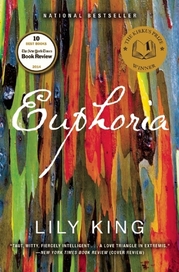 With three high-profile husbands and two serious relationships with female colleagues, the life of the anthropologist, Margaret Mead, seems to have been as original as her research endeavours. While criticised as both a woman in a man’s world and a populariser of social science, as well as her findings on the sexual freedoms of Samoan society being subject to challenge, she remains – according to my totally unscientific survey of one – the best-known anthropologist of all time. In Euphoria, Lily King brings her vividly to life in this fictionalised account of a woman with a very similar history to Mead’s during a period of fieldwork along New Guinea’s Sepik river in 1933. Nell and her husband Fen – malarial, injured and dejected after five months with the dreadful Mumbanyo tribe, she in particular despairing at their neglect and mistreatment of babies – are about to return to Australia when Bankson, another anthropologist based on Mead’s third husband, Gregory Bateson, familiar to me through the double-blind theory, persuades them to reconsider. 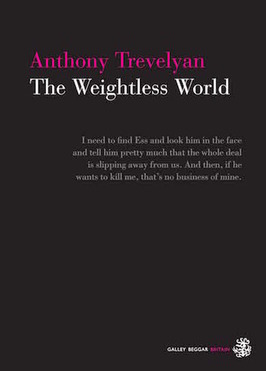 Back in the day when I worked with people who had psychotic experiences, it could be something of a challenge to distinguish fact from fiction in the stories they told me about their lives. Now and then I’d find myself wondering what if their seemingly incredible account were actually true? I was reminded of this on reading the latest novel for the Curtis Brown Book Group. Steven Strauss, twenty-something PA to the charismatic (and now deposed) founder of Resolute Aviation, Raymond Ess, is on a business trip to India with his boss. Since the company’s decline due to the collapse of a prestigious deal, Ess has been on sabbatical, or possibly sick leave. Returning to work with renewed vigour, Ess has a grandiose plan to rescue the company through the purchase of a remarkable invention he came across by chance when lost in rural India. Of course Steven doesn’t believe in the antigravity machine, but he’s persuaded to accompany his boss on his quest to find it in order to keep Ess out of the way while Resolute Aviation goes into receivership. What happens makes Steven – and we, the readers – question the boundary between madness and sanity. In the absence of gravity, what would keep us grounded to the real?  A couple of years ago, I published a post on the four criteria that make one a writer. Although I can appreciate the differing perspectives offered in the comments, I’m still happy with my description of a writer as someone who edits their work; understands the “rules” (although doesn’t necessarily follow them); has served their time; and has attracted readers beyond their immediate friends and family. Conveniently, this definition of a writer enabled me to claim the title for myself. I didn’t really consider the word “author”, and certainly not as a stand-alone title (as opposed to “author of” such-and-such a work), until I joined The Society of Authors last summer. Even then, it was because I needed advice on my publishing contract rather than to club together with other “authors” – such an old-fashioned term, I thought, that ought to be abandoned in the way that “artists” have now rebranded themselves as “painters”. That changed when, last month, I attended an event on working with the media, led by the award-winning former BBC TV reporter, Alistair Macdonald. 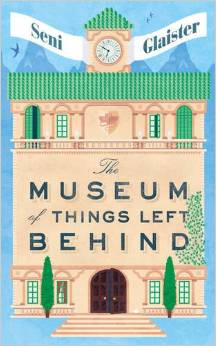 Sergio Scorpioni is the president of Vallerosa, a tiny land-locked country of rich red earth and steep ravines. With polling day imminent, Sergio is nervous, despite the fact that, in an elected dictatorship in which every job from postman to government minister is passed from father to son, his re-election is more or less confirmed. Lizzie Holmesworth is a well-meaning middle-class British student, keen to undertake some voluntary work with those less fortunate than herself as part of the Duke of Edinburgh’s award scheme. Arriving in Vallerosa on the overnight freight train – the country’s primary communication channel with the rest of Europe – Lizzie is overwhelmed by the beauty of her surroundings and the warmth of her welcome. What she doesn’t realise until much later is that the letter that preceded her, mentioning the Duke of Edinburgh’s award and bearing the image of Queen Elizabeth II on its stamp, has led them to expect a royal visitor who will endorse the government’s legitimately at this uncertain time. Reluctantly, she agrees to the president’s request that she continue with the pretence although, the more she learns about the country, the more she’s taken with the peacefulness of the lifestyle and the less she feels she has to offer. 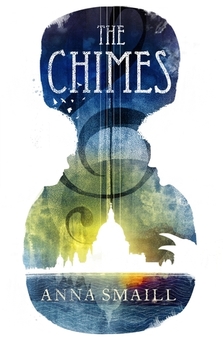 Have you ever walked into a room and forgotten what you came for and had to retrace your steps until you know? Have you ever forgotten something you were sure you’d remember and ended up repeating the self-same mistake you’d made the last time? Do you bring back souvenirs from holidays; do you treasure pictures, ornaments and other miscellany, not for their monetary value, but for the memory of how they came your way? Have you ever been touched by music in a place where words hardly signify? Have you ever been affected by a sound so loud you hear it, not just in your ears, but in your entire being? If your answer to any of these questions is yes – and I’d be surprised if it isn’t – you’ll connect with the themes in Anna Smaill’s exceptional debut novel, but you might need to hold onto these ideas to see you through the disorientating opening chapters. The plot is a classic quest: two young men gradually uncover the tangle of lies perpetrated by the elite of their country and set off to infiltrate the seat of power and destroy the source of their destitution, risking their lives in the liberation struggle. It’s a straightforward plot, but deployed with sophistication; there’s no simple demarcation between good and bad. Reaching the hallowed halls, Simon, the narrator wonders (p273): But what did we have to offer her in return, next to this beauty? the voice in my head says. No answers, no order. Nothing but mess, questions, fear. 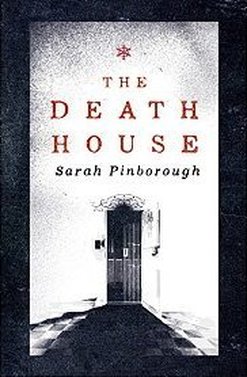 A bunch of teenagers lounge about in a country house on a remote island. They form gangs, their leaders battling for supremacy, though, with nurses and teachers standing on the sidelines, it’s not quite Lord of the Flies. Drugs also help to maintain order, in the form of the nightly “vitamins” that the narrator, Toby, secretes in his bedpost, leaving him free to wander through the house while the others sleep. Although, when he witnesses one of the boys being taken at night to the top-floor sanatorium, he almost wishes he’d stayed in bed. Everyone knows why they’ve been wrenched from their families to live in the Death House yet, through a mixture of boredom, bravado and emotional distancing, they try to defend themselves against the truth. Blood tests have shown that their defective genes have been activated; the adults are merely keeping watch for the signs of their sickness to show. 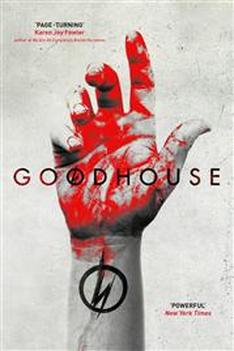 America at the end of the twenty-first century: a world of droughts; advanced technology; and boys identified with the gene for criminality compulsorily enrolled in corrective institutions from the age of three. James is one such child: a Level 1 student with the prospect of a decent life on graduation in under a year’s time. That’s if he can abide by the school’s strict regulations to avoid accumulating any “demerits” and prevent the memories of a vicious arson attack on his previous school from disturbing his calm. Yet, brutal as the school may be, James is anxious about venturing into the civilian world with its confusing freedoms and potential encounters with the hostile Zeros, religious fundamentalists intent on purifying the world by fire. When, on his first Community Day outing, he steals a girl’s barrette hair slide, a set of progressively harsher punishments is set in train which sees James, not only losing his relatively protected status, but uncovering a network of corruption within the school far deadlier than he could have imagined. |
entertaining fiction about identity, mental health and social justice
Annecdotal is where real life brushes up against the fictional.
Annecdotist is the blogging persona of Anne Goodwin:
reader, writer, slug-slayer, tramper of moors, recovering psychologist, struggling soprano, author of three fiction books. LATEST POSTS HERE
I don't post to a schedule, but average around ten reviews a month (see here for an alphabetical list), some linked to a weekly flash fiction, plus posts on my WIPs and published books. Your comments are welcome any time any where. Get new posts direct to your inbox ...
or click here …
Popular posts
Categories/Tags
All
Archives
March 2024
BLOGGING COMMUNITIES
|
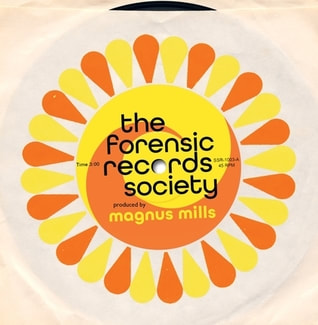

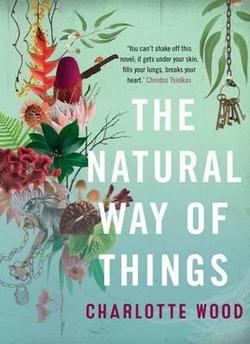
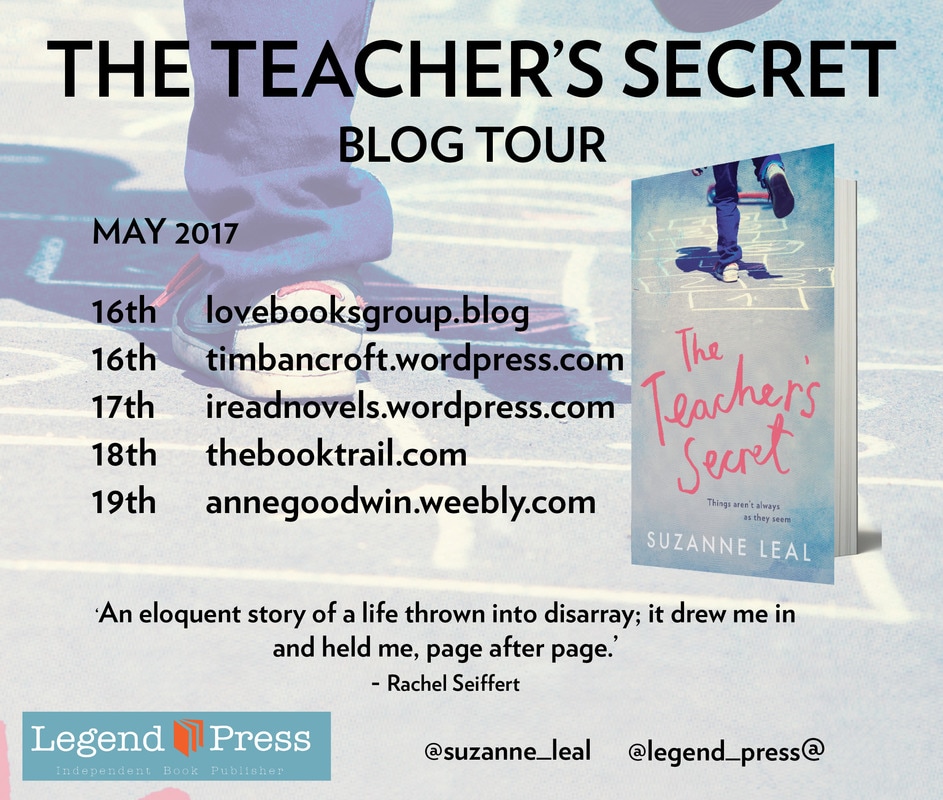



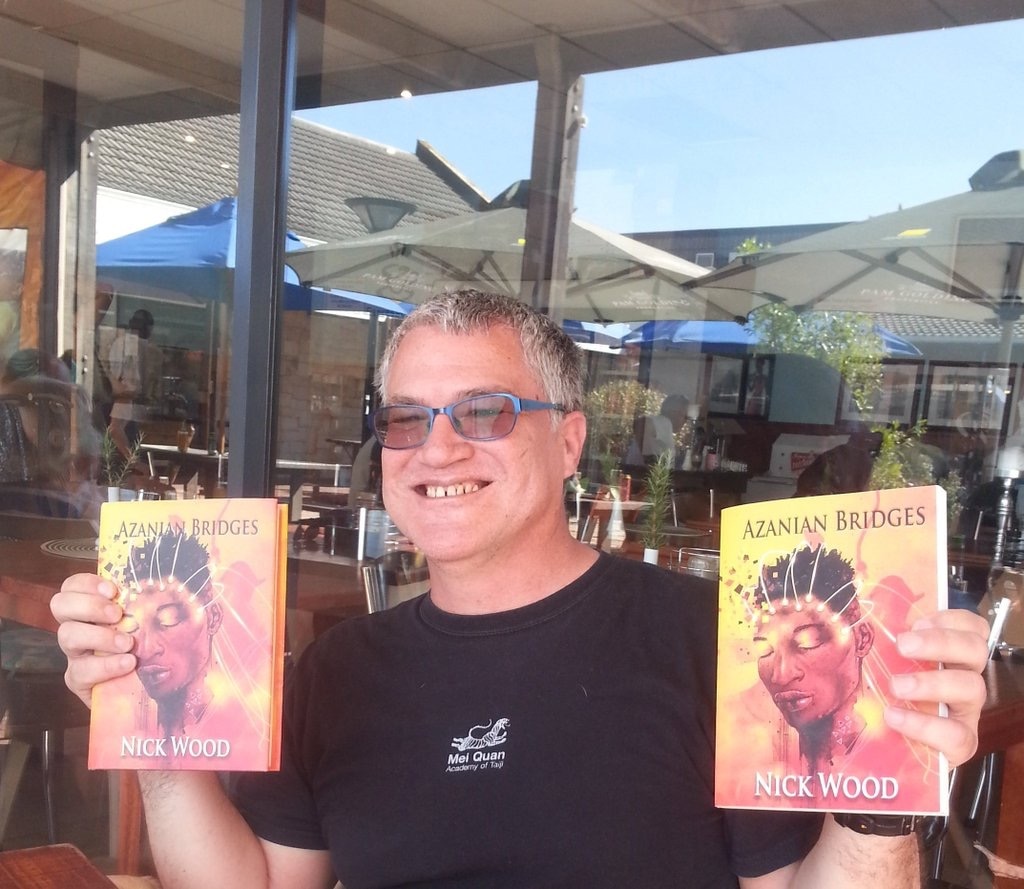

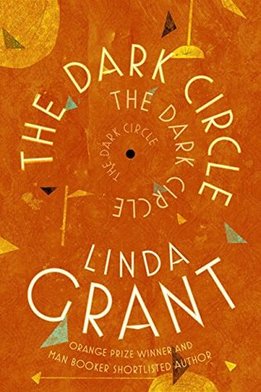
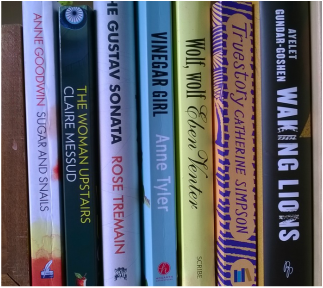
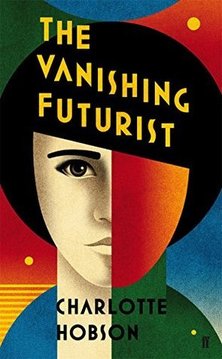
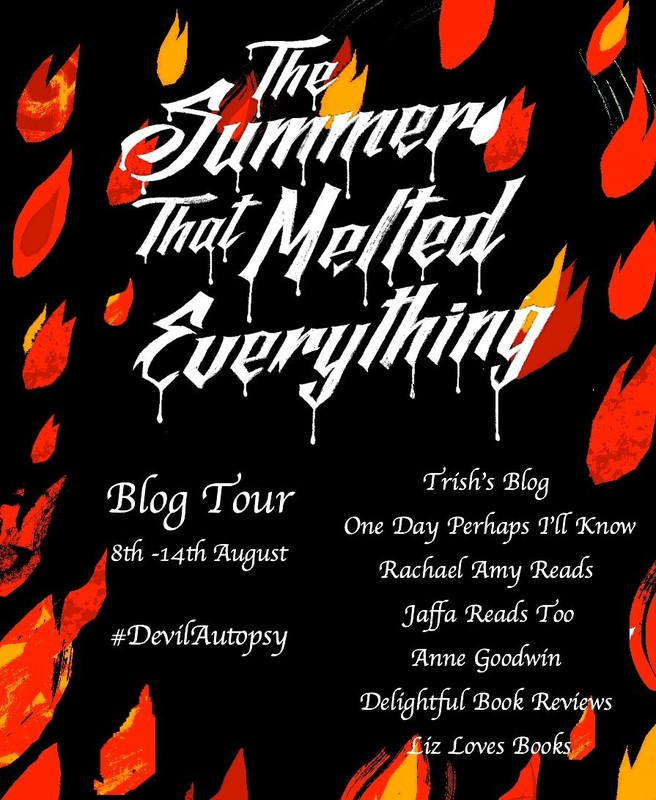

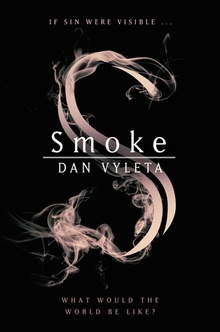
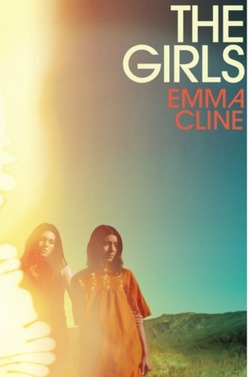
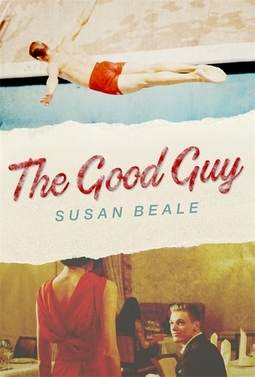
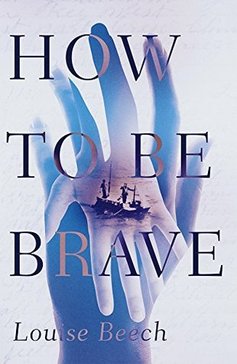
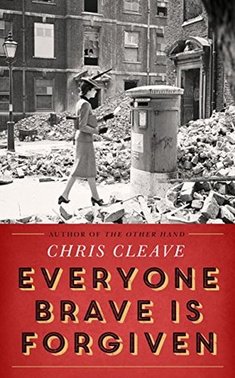
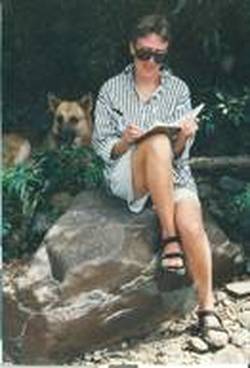
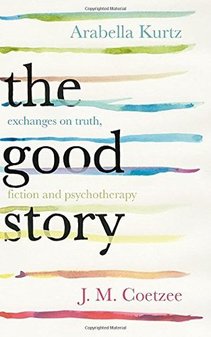





















 RSS Feed
RSS Feed





















